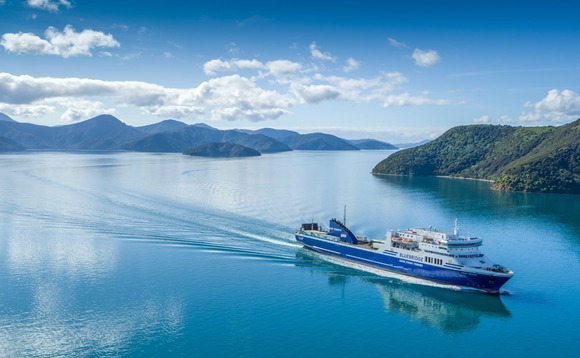
CPE sells New Zealand shipping business to Morgan Stanley

Australian middle-market private equity firm CPE Capital has sold StraitNZ, a ferry and logistics operator that runs services across the Cook Strait between New Zealand’s North and South Islands, to Morgan Stanley Infrastructure Partners (MSIP).
The deal was first reported by The Australian Financial Review last December, which claimed the valuation was more than NZD 500m (USD 348m). MSIP has now confirmed the transaction.
CPE – then known as CHAMP Private Equity – acquired three shipping businesses in 2016 for an undisclosed sum. Strait Shipping, Freight Lines, and freight forwarding operator Streamline were all founded by New Zealand transport industry pioneer Jim Barker, who began the sale process and remained closely involved up to his death the same year.
StraitNZ is one of only two companies managing multiple daily freight and passenger services across the Cook Strait. More than 90% of New Zealand's freight is distributed by road and imports are increasingly concentrated at North Island ports. Consequently, ferry services connecting the two islands are an essential part of the national supply chain.
"Structural shifts towards higher e-commerce activity, as well as strong secular trends within New Zealand, all support the increasingly critical nature of the asset," said Mark McLean, head of Asia Pacific investing at MSIP, in a statement.
The statement added that StraitNZ benefits from strong barriers to entry through long-term port leases, dedicated berthing facilities, and geographic constraints on the creation of additional port capacity.
In markets like Australia and New Zealand, PE investors often take assets with infrastructure-like characteristics, iron out operational, regulatory, and market complexities, and exit to infrastructure investors. However, in recent years, core-plus infrastructure funds have proliferated and stretched the definition of what they will touch to include more operating assets.
While the phenomenon taps into super trends around demographics, energy transition, and technology, it is also a function of low interest rates and ample liquidity. As returns on more conservative assets are bid down, investors can only meet their targets by moving up the risk curve.
StraitNZ is the second shipping asset to make the transition from private equity to infrastructure in recent years. It follows QIC's 2019 acquisition of Sea Swift, which serves fishing communities and natural resources outposts off Australia's northern coast, from CHAMP Ventures.
However, Sea Swift has presented QIC with significant challenges as it looks to create a sustainable business that can expand into different service areas, thereby offsetting issues around competition, volumes, and pricing. "There is real risk in core-plus, no question," Ross Israel, global head of infrastructure at QIC, told AVCJ earlier this year, in reference to the Sea Swift.
Latest News
Asian GPs slow implementation of ESG policies - survey
Asia-based private equity firms are assigning more dedicated resources to environment, social, and governance (ESG) programmes, but policy changes have slowed in the past 12 months, in part due to concerns raised internally and by LPs, according to a...
Singapore fintech start-up LXA gets $10m seed round
New Enterprise Associates (NEA) has led a USD 10m seed round for Singapore’s LXA, a financial technology start-up launched by a former Asia senior executive at The Blackstone Group.
India's InCred announces $60m round, claims unicorn status
Indian non-bank lender InCred Financial Services said it has received INR 5bn (USD 60m) at a valuation of at least USD 1bn from unnamed investors including “a global private equity fund.”
Insight leads $50m round for Australia's Roller
Insight Partners has led a USD 50m round for Australia’s Roller, a venue management software provider specializing in family fun parks.







